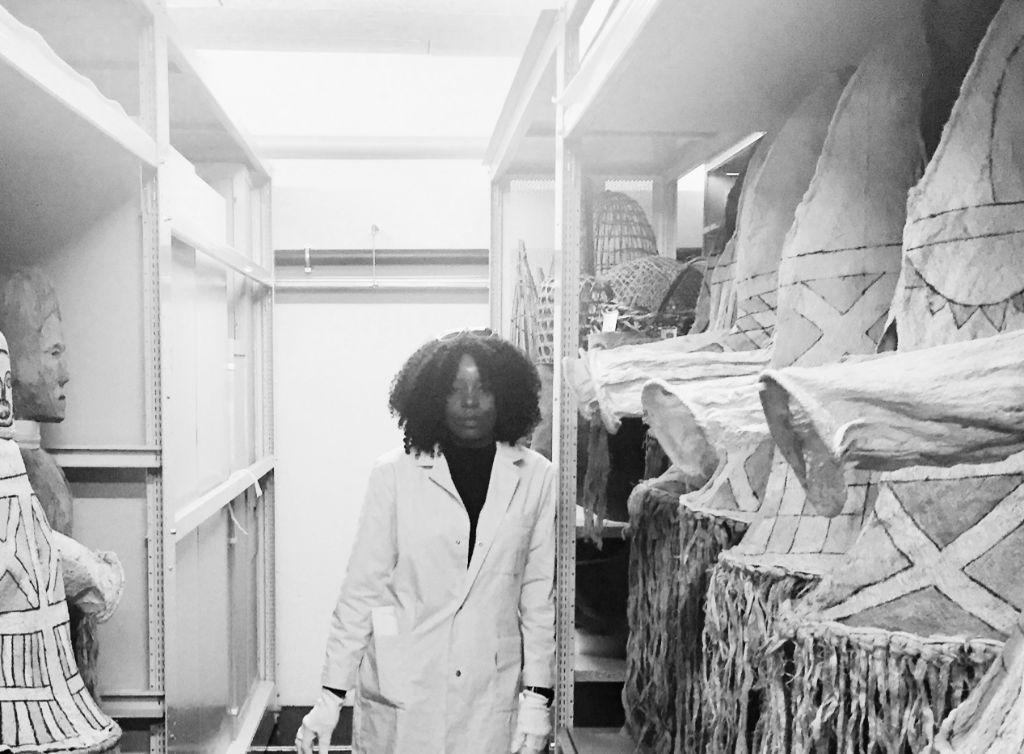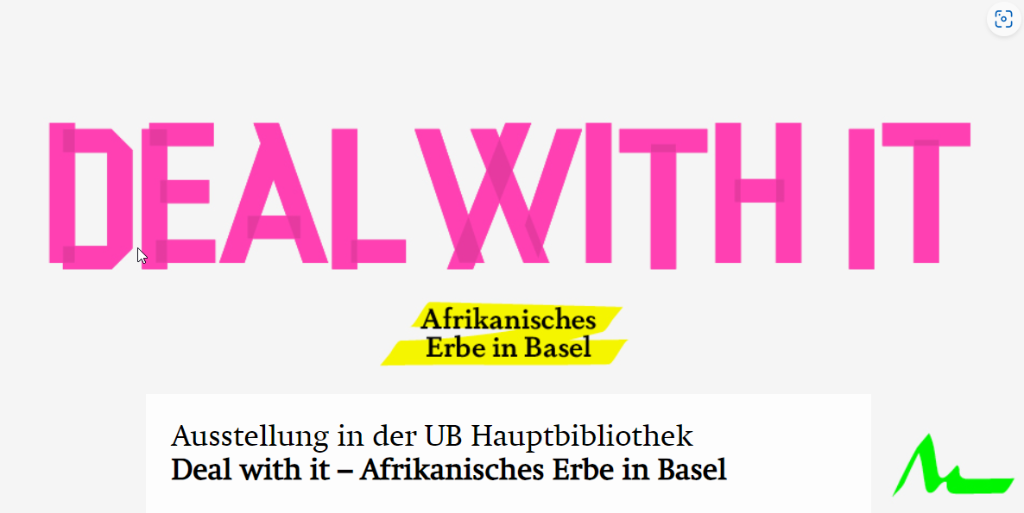Circulating things
Curators and researchers will explore in a discussion the presence and agency of things. The event will take place on October 4 at 6pm.
Decolonization and restitution
Zainabu Jallo is a Post-Doctoral researcher and lecturer in Anthropology at the Universities of Basel and Bern. Her research interests include museum anthropology, Afro-Atlantic diaspora, iconic criticism, and material culture.
She will be one panelist in our debate “Circulating things” in our event series “Grasping anthropology”. In the evening of 4 October we will explore the presence and agency of things.
The focus is on the contexts of their making and migration, their roles as mediators between different worlds, their changing functions and meanings along their ways. We follow their traces and impact in current debates on decolonization and restitution from different perspectives.
Zainabu Jallo explains that her previous project, “The Sacred and the Spectacular: Diasporic Consciousness through the Material Culture of Brazilian Candomblé” traced the ways in which the mobility of artefacts enforces a continued impression of diasporic consciousness on the one hand and how, on the other, visual representations have supported the creation of a symbolic cultural identity of Brazil.
She says: “My current project, ʽMaterial Religion and Criminal Anthropology in the Afro-Atlanticʽ, follows the contexts in which sacred objects were violently confiscated from various sanctuaries to criminal anthropology laboratories and police custody. The investigation takes mobilities of objects as its premise and concentrates on the multiple connotations and implications of object transfers from sacred spaces to police custody as crime exhibits brown. One of the aims is to illustrate the prejudices of criminal anthropology upon African-derived religious cultures based on legal, institutionalised precepts as informed by faulted scientific findings.”

Zainabu Jallo during her researches at MKB (Foto by Alexander Brust)
Connecting
A second panelist is Elisa da Costa. She has worked for ten years in communications before deciding to go back to university where she is now pursuing a Master in African Studies. This year she co-curated a historical exhibition in Basel called "Deal with it" and started her own podcast called "Blackfluencers", where she portrays black people living and working in Switzerland.
As co-curator and student she was able to visit various institutions and their archives with so-called Africana Collections in Basel. That's when she realized how intertwined her two home countries Switzerland and Angola really are and how little of this connected history is taught.

The exhibition runs through Nov. 16, 2023, Monday till Friday, 8 a.m.-8 p.m., Saturday 10 a.m.-8 p.m., free admission.
Democratizing culture
Marilyn Umurungi, our third panelilst, is a multidisciplinary curator and cross-cultural researcher. In her work she is mostly interested in African history and philosophy, with a critical afro-feminist focus on literature, music, and the visual arts. She mostly looks at inclusion and exclusion mechanisms in the European art historical canon – often using current social movements or popular culture as a backdrop. At the center of her research are questions about the role of the dominant paradigm in «global» art history, and how representation and positionality matter, in order to create culture or to democratize it.
She says, regarding to the topic of the discussion, that she is interested “in questions around the ʽtransformative potentialʽ, if I can call it like that, of objects. Meaning: How an object can be given, but also robbed from, a specific agency.”
Marilyn Umurungi is also co-curator of the upcoming exhibition at the Landesmuseum Zürich in fall of 2024, "Switzerland and Colonialism".
